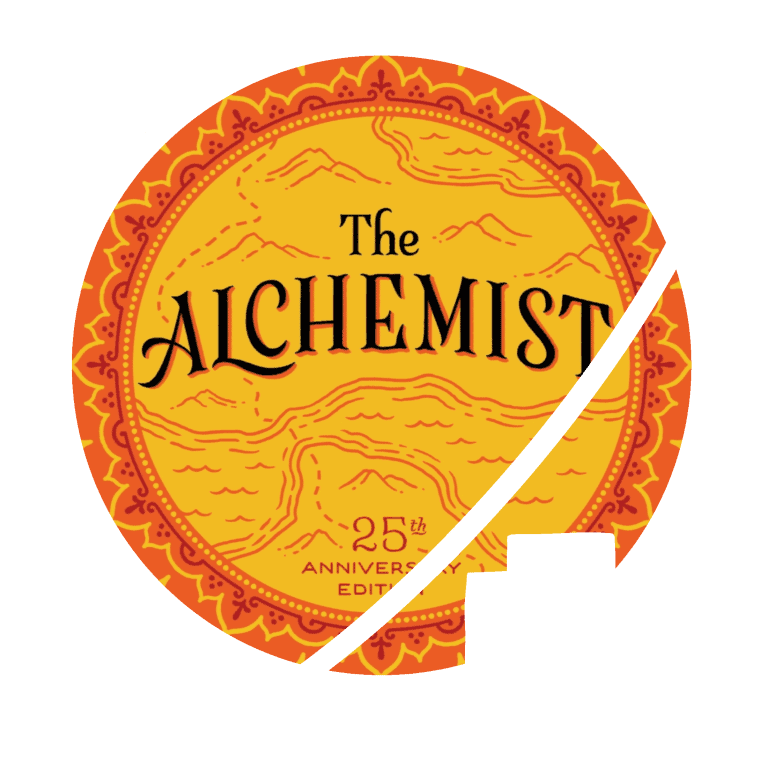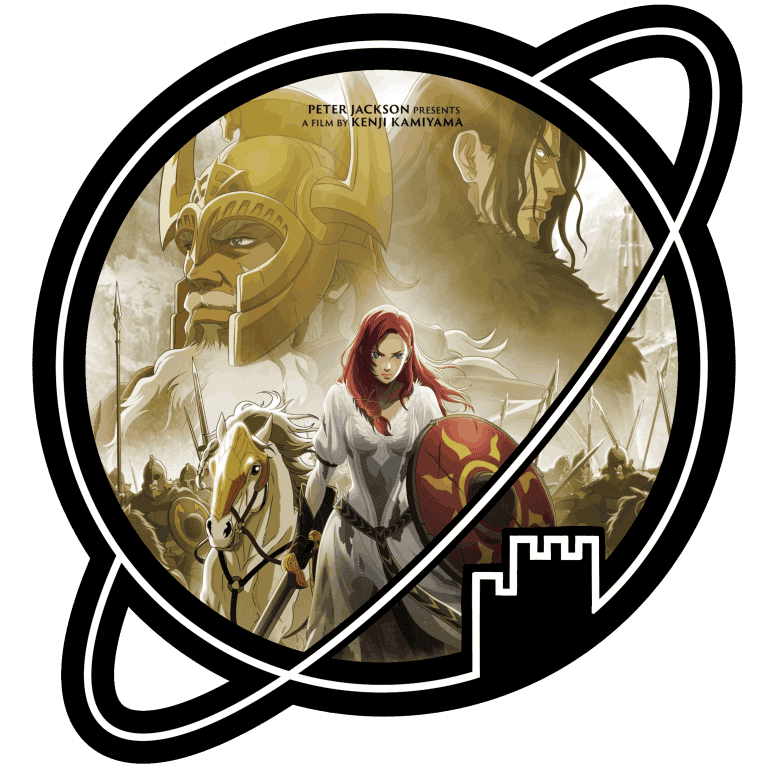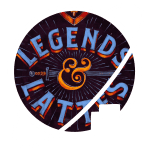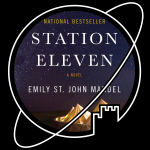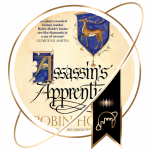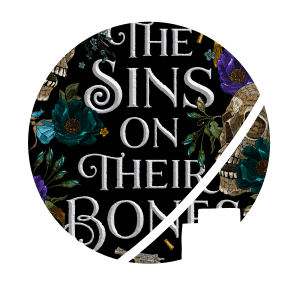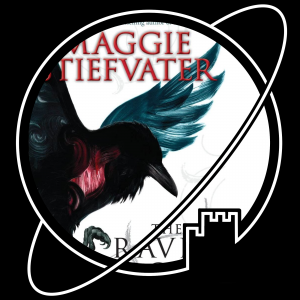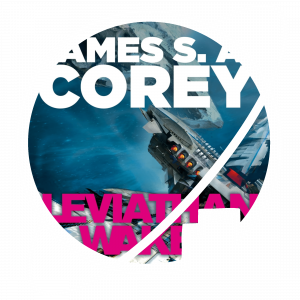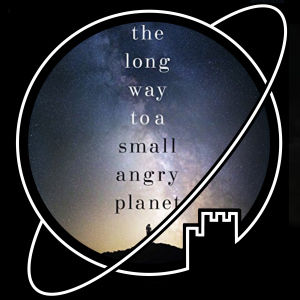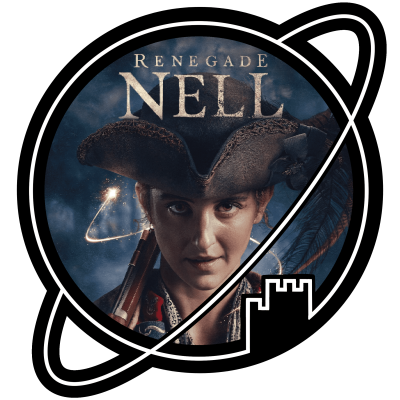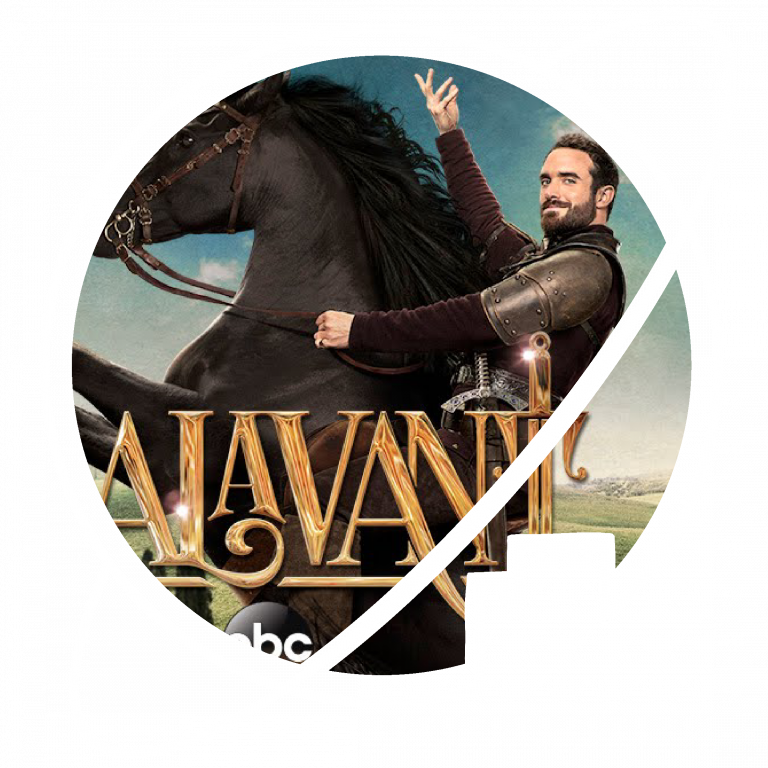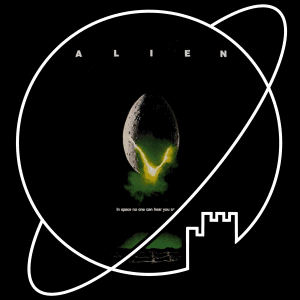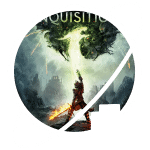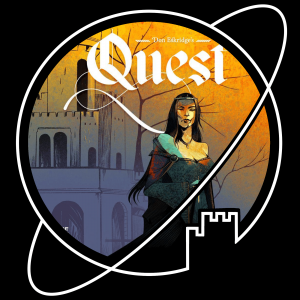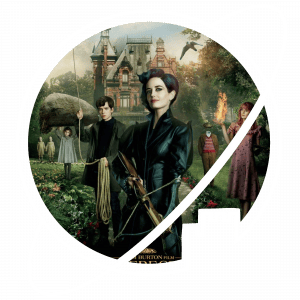Welcome to the Escape Velocity Collection!
We are an opinionated group of friends reviewing all sorts of fantasy and science fiction media. Don’t forget to get to know the curators and visit our curated Collection, where we discuss the stories that never cease to transport us to another world.
Will you escape with us?
LATEST POSTS:
We survived another one! Another year done, with highs and lows for everyone.
Our curators look back at their 2024 in speculative fiction, by evaluating their resolutions for the year and highlighting their favourite media/reviews of the past twelve months.
How successful were you in fulfilling your 2024 resolutions? And, when it comes to speculative fiction, what were your favourites, disappointments and surprises this year?
2024 resolutions
Judging by my resolutions for the year alone, 2024 was a bad one – I am only one for three!
I resolved to learn to paint with an airbrush. I did paint a handful of miniatures with my airbrush, but the truth is that the type of mini painting that I enjoy and the type of minis that I paint don’t lend themselves particularly well for the airbrush – the MESBG minis that are my favourites are very small and I tend to paint them one by one instead of in batches. I have bought a second hand Mûmak recently, though, so the airbrush will surely come in handy there…
I also promised myself to read a Warhammer-novel. I started on Gilead’s Blood by Dan Abnett, mostly because it was the first novel in a collection that Lotte found for me at the thrift store. I’m not done yet, but… so far its not great. I’ll upload a review if I finish it, but I a seriously considering just putting it down. Perhaps I should have resolved to read a good Warhammer novel…
And finally: I did actually finish a story! It’s one that I’ve been working on for years – it turns out it’s about novella length. To actually finish it is really satisfying and also motivating – perhaps I’ll get some serious work done on the follow-up (probably going to be a prequel? Am I writing these in the right order?) in 2025!
favourite
Going by my star ratings, my favourite media of 2024 are Denis Villeneuve’s second Dune movie and Paulo Coelho’s The Alchemist – two quite different stories that I liked for quite different reasons.
If I had to pick one, I think I’d have to go with The Alchemist – for some reason that little book struck a note with me and I would heartily recommend it to everyone who needs an uplifting message in their life. It’s all a little just-so, of course, a fairy tale constructed to support the message, but I really liked the vibe and Jeremy Irons did a great job reading it.
The Alchemist is from the eighties and not from 2024, though, so if that takes precedent than Villeneuve’s awesome movie with its stunning visuals is a worthy pick – I think I saw it in cinema three or four times and loved it more and more each time.
I’m almost disappointed that Ted Chiang’s Exhalation didn’t win this year, because a couple of the stories in that collection are top-tier as well.
Biggest Surprise
I think my biggest surprise is probably the Singing Hills Cycle – it was not on my radar at all, but I blasted through all five published novellas this summer and I’m still craving more. Especially Mammoths at the Gates was one of my favourite reads this year. I think Nghi Vo does an amazing job with the structure of each of the novellas and I loved how she transitioned the focus of the Cycle from the story inside the frame to the frame narrative itself. Reading those novellas actually helped motivate me to finally finish that story of my own (not that I would want to suggest in any way that it is near as good as what Vo is putting to paper), which is, I think, I great indicator of how captivating that series is.
Biggest Disappointment
For my biggest disappointment, I’m going to go with Children of Dune. I already knew the series was going to go downhill pretty steeply, but I honestly did not expect the drop off in quality from Dune Messiah, which I still really liked, to Children of Dune. I went into it at length in my review, but I just think that Herbert’s style becomes so dense that sometimes you’re wondering what you’re really reading for pages on end.
I was really hoping for a good capstone to that initial trilogy but it turns out the decline has already set in. It actually put me off reading God Emperor of Dune, which I was planning to read as well – I’m a little scared of what that will bring now. Perhaps I’ll work up the courage next year, we’ll see!
2024 resolutions
- Dragon Age: Dreadwolf – BioWare
Yikes. Even looking at the fact that we still referred to it as “Dragon Age: Dreadwolf” makes it seem like we wrote these resolutions YEARS in the past. I suppose on a positive note I could say that I didn’t play Dreadwolf, so it could still be a really good game, just one that wasn’t released this year. Dragon Age: The Veilguard, however, absolutely didn’t even come near my expectations of the next DA game. On the plus side, I did succeed in this resolution! And we really can’t say that for the rest of them.
- Get back to doing art, specifically fantasy-themed
I barely drew anything this year. This foolishly won’t stop me from putting this resolution straight back on my list for 2025.
- Take some good photos of my Howl’s Moving Castle Sophie cosplay
Yeah, I usually go to our “local” ren faire, which is where I debuted this cosplay last year. I couldn’t take good pictures last year because it rained all day. This year, I ended up not going at all, though I don’t believe the weather was much better… So much for a simple resolution, huh!
favourite
There really wasn’t anything that super stood out to me this year, I’m afraid. I suppose the novel Howl’s Moving Castle was really good? As in, it didn’t blow me away but it was nice to read a good, immersive fantasy story after what felt like ages of disappointing fantasy books.
Biggest Surprise
My biggest surprise is probably that the Farseer book series ended with a trilogy that just didn’t work for me the way the rest of the series had so far. There were definitely things I enjoyed about it, I just expected it to touch me a little more. But I guess I should just be glad to even get to read a completed fantasy book series these days!
Biggest Disappointment
Dragon Age 🙁
2024 resolutions
I managed to complete my first two resolutions quite early in the year: I read Legends & Lattes in January, and I also played Roam around that time. Legends & Lattes was cosy, but on the whole it did not really live up to my expectations. I do remember enjoying Roam, but to be honest I have not played it in a long time now and I remember very little about it. I guess looking back at this resolution is a good reminder to dust it off and give it another go!
While the third resolution (the art challenge with Lotte) did not really end up taking off, I did manage to spend some more time this year drawing. That’s something I definitely hope to bring into the new year.
favourite
Both Prophet Song and The End We Start From rank very highly on my list of favorites of this year. Both are quite dark, dystopic tales, so I don’t know what that says about me. But I am currently rereading another dystopic favourite from recent years: Station Eleven. So apparently I have not tired of the genre yet.
Biggest Surprise
My biggest surprise of the year has to have been The War of the Rohirrim. And by this I don’t mean the quality of the movie, but the fact that it existed at all: somehow I managed to miss all announcements for it, so I was pleasantly surprised when Peter and Jop suddenly asked if I wanted to come along to the cinema.
Biggest Disappointment
It would be easy to say The Rings of Power, but my expectations for it were not that high in the first place so maybe it doesn’t strictly count as a disappointment. Other than that I cannot come up with any major disappointments though, so let’s stick with that answer. While I did not expect it to be good, I also did not expect that I would not even end up finishing the season!
2024 resolutions
2024 was not a bad year when it comes to my resolutions. I got to finally play the next Dragon Age (I have no issues whether its subtitle is Dreadwolf or The Veilguard) and greatly enjoyed it! Furthermore, some days before writing this wrap-up, Peter and I played the first MESBG scenario with my fantasy fellowship. Technically a little too late, but I say it counts.
As for writing and worldbuilding… I’m sort of on a journey of rediscovering these hobbies. Combined with beginning a new master’s programme and a job, I had little time to make great strides in this journey. However, it’s been a slow burn. I have inspiration and plans. For now, that’s enough.
favourite
This is quite ironic after Lotte’s considerations, but Dragon Age: The Veilguard was definitely the highlight of 2024 for me. It was a story of grief, regret and fighting against imposing odds that deeply resonated with me. The same goes for the Rook I created. The echoes of her and her story will stay with me for a while.
Biggest Surprise
This might be Renegade Nell for me. It was a rather impulsive watch for me, but managed to give me much joy.
Honourable shout-out to the modern Planet of the Apes movies. I decided to watch them – just to see what this franchise was about – and actually quite enjoyed them. They had more nuance than I expected.
Biggest Disappointment
Probably Lotte’s skill issue in enjoying Dragon Age: The Veilguard…
I’m jesting, of course. Firstly, I’m not cool enough to successfully use modern slang. Secondly, one’s dislike or enjoyment of media is entirely within their right, and I can at least understand how Veilguard‘s rendition of ‘choice matters’ is a disappointment to some.
Still, it’s a bummer when a story means a lot to you and you can’t properly share this experience with friends because they hated it. However, I suppose this goes both ways…
Otherwise, the second season of Rings of Power. I’m afraid they lost me before the season finished.
That’s us for today, folks! Happy holidays!
Check out some of the reviews of related media here:
- Novel written by Leigh Bardugo
- Published on September 29, 2015
- Part one of the Six of Crows duology


I’ve previously read two books by Leigh Bardugo: Shadow and Bone and Ninth House. I quite enjoyed both books, and I’d hear a lot of good things about Six of Crows. Specifically, I’d heard that Six of Crows was better than Shadow and Bone.
I quite liked Shadow and Bone, but I found the characters to lack a bit of depth, and the pacing was kind of off. However, I really enjoyed the world building of the Grishaverse. Six of Crows features all of the good Grishaverse worldbuilding, with much more interesting characters and better pacing. It’s been a while since I managed to fully focus on a book for an extended period of time, but this one managed to keep me hooked quite well.
Six of Crows is moody urban fantasy, taking place mostly in Ketterdam (fantasy Amsterdam) and partly in Fjerda (fantasy Scandinavia?). I’m personally a big fan of authors who know that they can ground their worldbuilding in existing places that most people already have an idea of, and add their own (fantastical) touches to it. The world Bardugo has built feels incredibly rich and real, without her having to explain every little detail to us. There’s a lot we can fill in based on what we know of these places in real life. A lot of classic fantasy does this, mostly with places like England and Scotland. I enjoyed seeing how well some other locations lend themselves to being turned into places in a fantasy universe. Bardugo also uses her worldbuilding really well. You can clearly tell where her inspirations come from, but it never feels cheap or lazy.
When I watched the show Shadow and Bone, which incorporates caracters from this book as well (though in my opinion not super well), I didn’t particularly care for the crows. There’s plenty of material in the book for a full 8 episode series focused just on this story, so it’s a shame they didn’t get that space. I enjoyed the characters of Six of Crows much more than those in Shadow and Bone, especially Inej and Kaz. I did think it was a little weird that they were all literal teenagers, but that may just be because they’re all definitely over the age of twenty in the Netflix show.
Though I enjoyed the book, I don’t feel particularly moved to buy the sequel. In a way, this is actually a testiment to how well structured the story is. It has an open ending, but not one that leaves you wanting, per se. Or at least, it didn’t leave me wanting to run out to the book store.
Tagged:
See also:
- Novel written by Iain M. Banks
- Published in 23 April 1987
- Part 1 of the Culture series


I decided to read Consider Phlebas because I have read a couple of later Culture-novels by Banks when I was in university and I think the Culture is a fascinating construct that raises all sorts of interesting questions: what do humans do in a post-scarcity society? Is it bad to be lorded over by machines if they give you Utopia? etc.
I had a vague idea that Consider Phlebas observes the Culture from the outside, and I figured that that the first instalment in the series would give us plenty of background information to help set the scene.
Unfortunately, even though Consider Phlebas has a couple of interesting peeks into the Culture, it is not really about hat society; it appears that Banks developed his ideas on the Culture throughout the series. In this first instalment, the Culture is in the hazy background instead of in focus.
Consider Phlebas is instead ‘just’ an adventure novel that earns its sci-fi chops mostly due to the potential of those interesting but half-formed ideas.
As an adventure novel, Consider Phlebas is decent but unremarkable. It took me a good while to finish Consider Phlebas, mostly because I checked out of the story a couple of times – I don’t think the rather traditional search for the McGuffin is particularly engaging.
Horza, the protagonist, goes through a series of almost episodic ordeals on his hunt for the Mind that aren’t exactly uninteresting (though one is rather gory) but that add little more than imaginative flourishes and length to the novel. The final episode ends up being rather convoluted in its detail (and, given the scale of the universe Banks created, perhaps somewhat pedestrian).
I think Consider Phlebas is saved by the easy flow of Banks’ prose and his pacing. The above description might make it appear as if the novel is boring or poorly paced; I wouldn’t say that – there is always action and there is always a clear intermediate goal Horza is working toward next.
Banks takes you with him very naturally and I think the book’s climax is a masterclass on describing quickly moving events from multiple points of view (I think there are a couple of minutes that take up 50 pages without the tension snapping).
It is mostly when taking a step back that Consider Phlebas doesn’t appear to be offering a lot. If you put it down in between episodes, there is very little to get you back in. The little tidbits of background in the appendices (which are more like and epilogue) are perhaps some of the strongest writing in the entire novel and they show that Banks’ imagination and easy prose, when coupled with a more ambitious plot, have the potential to be much more memorable than this first Culture-novel ends up being.
It pains me to rate Consider Phlebas as low as 2.5 stars, but the truth is that it I really had to put my mind to it to get through it. Perhaps I should re-read those other Culture novels and see why they stuck with me over all these years.
Tagged:
See also:
- TV show developed by Sally Wainwright for Disney+
- Starring Louisa Harland, Frank Dillane, Alice Kremelberg, Enyi Okoronkwo, Jake Dunn and others
- Released in 2024
- 1 season of 8 episodes
Renegade Nell caught my eye because of its historical fantasy vibes, but didn’t immediately entice me because of the quirky superhero vibes the trailer also evoked (which can be fine, but only when I’m in a very specific mood). Once I put my mind to watching this series, I was quickly charmed by the unique style of Renegade Nell, especially when it became apparent there was a clearly magic (or at least supernatural) explanation for Nell Jackson’s powers.
The story of this series is nothing too special, a revenge/redemption plot with some twists and turns. However, the sheer delight with which the actors portray their characters (especially Louisa Harland as Nell) makes it all work. I was quite impressed by how the writing in Renegade Nell maintains a fine balance between (lighthearted) comedy and at times truly dark suspense. It’s a contrast I seldom expect to encounter, but almost always appreciate.
My only (somewhat serious) complaint for this series (apart from the fact that Disney has cancelled it after the first season) would be the fact that the Jacobite Rebellion seems to be ruthlessly lumped together with evil manifestations of Satanism. Blame Outlander, but I’m to much a Jacobite at heart to simply accept this. Otherwise, Renegade Nell definitely deserves a try.
- Movie directed by Alex Garland
- Based on Annihilation by Jeff Vandermeer
- Starring Natalie Portman, Oscar Isaac, Jennifer Jason Leigh, Gina Rodrigues, Tessa Thompson, Tiva Novotny and others.
- Released 23 February 2028
- Runtime: 115 minutes

Generally, I like adaptations that stay true to the source material; too often, it appears movie or tv writers don’t really understand the story they are adapting.
In case of Annihilation, I was quite underwhelmed by the source material and I am happy that the movie was only loosely based on the book.
One of the main problems with the book (besides desperately attempting to come across as intellectual) is that it is full of mystery but never resolves any of those riddles.
I won’t say that the movie takes you by the hand exactly, but it at the very least attempts to make sense. There is a lot of meaningless technobabble (or I guess I should say, biobabble), but that is part and parcel of a Hollywood sci-fi movie. But beyond that, there is some amount of logic and recurring themes.
I think my differing reviews of Vandermeer’s novel and its movie adaptation say a lot about me and how I enjoy my media: in the end, I need the story and the world to make sense. That does not mean that they are not allowed to be surreal or out there, but the questions need to have answers, the characters need arcs, and the story needs to come full circle. As much as I might think that a lot of what Hollywood produces is absolute slop, I am clearly a child of that style of storytelling.
Besides, the tried-and-tested Hollywood formula is reused for a reason: where the book never once got me invested in the characters, the movie managed to tug on my heartstrings at least a little. In particular, Oscar Isaac made the most out of the small role he had; I think Natalie Portman had her moments.
While improving on the plot, the movie adaptation of Annihilation maintains the sense of the surreal that the book has. Moreover, the movie removes a lot of cringe and adds a layer of beauty and visual impact that drew me in in a way that the book never did.
To be honest, the surreality of the setting meant that Annihilation never really worked for me as a horror movie. No chills down my spine, no goose bumps. But the ending, while perhaps just a little confusing, was grand enough to keep me watching and the final scene was satisfying.
Annihilation is no masterpiece. It is perhaps a little action-heavy and plot-focused for my liking, but it works and is worth watching.
- Video game developed by Bioware
- Published by Electronic Arts
- Released om October 31st, 2024
- Action Role-playing game
- Platforms: PC, Playstation 5, Xbox Series X/S
- Playing time: 40-80 hours
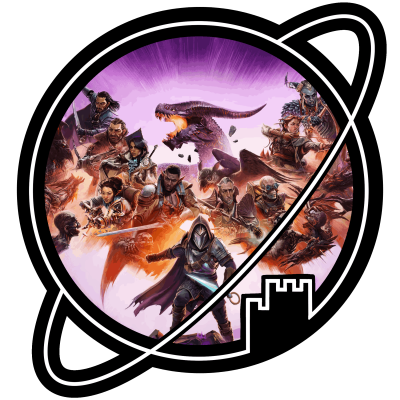

Dragon Age: The Veilguard was a long time coming. Ten long years, to be precise, with at times the very real possibility that it might never come again. And I was there during the whole wait, diligently checking the unofficial Bioware Social Network every day to see if there might be some news snippets (often finding nothing). This might seem a tad obsessive to some, but it’s the truth nonetheless. The Dragon Age games have always spoken to me on a deep personal level. Something in their DNA relates to me, something I haven’t really found in any other roleplaying games (not even Baldur’s Gate 3, even though I’ve enjoyed that game a LOT). What’s in their DNA, I hear you ask? Some thoughts I’ve lately had in regards to this – partially inspired by my spiritual care studies and some reflections by Dragon Age YouTuber Ghil Dirthalen – have led me to conclude that it might have to do with the emotional themes this series often touches upon and how they connect it to their lore and characters. Keep this in mind for later in this review.
Ten years. This is a long time to build a lot of expectations, especially if the end of Trespasser left enough of a mark on you. Dangerous things, expectations. They very easily lead to disappointments if you’re not careful. Luckily, Veilguard didn’t disappoint me. Was it different than what I had often dreamed up while I was waiting? Certainly. However, change is also very much part of Dragon Age’s essence for me. No game was ever like the one that came before it. Similarly, every game always circumvented my expectations of what the story would focus on. By now, I’ve come to expect to be surprised, my expectations challenged. And I can honestly say that (just like its prequels) Veilguard has managed to charm its way into my heart. I love it.
Before I dive too deep, let me preface the rest of my review by saying Veilguard isn’t perfect. Just like the games before it, there are thing that could have been better. For me, this pertains to some weird pacing at the start of the game – where characters also are prone to infodump worldbuilding in ways that lack elegance – as well as the rather abrupt ending. Although I’ll find a way to forgive Bioware for not planning for DLC’s for Veilguard, I really feel the game would benefit from a playable epilogue in which you can speak with your companions and allies just for a little bit. On the other hand, a decision I thought I would hate but ultimately didn’t mind too much, is the lack of choices from previous games that you can import. However, I do still hope that a next Dragon Age would find a way to include more.
In many ways, Veilguard seems the end of an era. Many lore mysteries are revealed – often confirming theories that fans had puzzled together years ago. In the case of the history of the Evanuris, the Old Gods, the Blight, the Fade and the Titans I was very excited to finally learn the answers. Furthermore, I very much liked how these answers were presented to us, through playable quests and flashbacks, memories to be thoroughly discussed with your companions and the occasional codex entry. Only in some cases, such as the lore surrounding the Forgotten Ones, I would have liked some more context. One critique I’ve seen online is that people felt the lore/worldbuilding of the earlier games was retconned. This is not a feeling I share. The lore of Dragon Age has always been presented in very subjective ways (yes, this also applies to you, Genitivi), resulting in somewhat of a challenge to try and extract what knowledge might be universally true. After recently replaying the other games, I recognised where the lore reveals built upon earlier (incompleted or warped) knowledge. I still love how these games present their worldbuilding, and I’d love to see where future games might take it next. The hooks that were presented in Veilguard (including the secret credits scene) have sparked my interest.
As for Veilguard’s writing, the plot of this game might be the most cohesive of the series yet. The protagonist, Rook, mirrors the history of one of Veilguard’s main antagonists, Solas. The overarching themes of regret and grief echo in multiple storylines and is at times deeply evoked in the choices we make and one particular plot twist that puts all that came before in Veilguard’s story in a new perspective. As mentioned earlier in this review, this is something that I can deeply appreciate. I really respect some of the writing choices that were made, though I understand they also came with controversy. Dragon Age: The Veilguard is also a story of putting aside differences to unite against a bigger threat. Moreso than in earlier games, this narrative is handled with a focus on radical hope and goodwill from all involved factions. As a result, some of the darker worldbuilding aspects of the setting are less visible than before, though we can still recognize them in environmental storytelling and codex entries.
Once again this Dragon Age installment contains some solid companions and NPC’s. Some of my personal favourites were Neve, Bellara and Taash. Unfortunately, just like in Dragon Age 2, we don’t have the ability to casually talk with them whenever we want to. Instead, they now ‘rotate’ around the player hub – a location I absolutely loved, by the way – and have conversations with eachother. At times, we can trigger cut scenes through which to know them better. Fitting for this game’s story, the companions form a very cohesive team and have little disagreements with eachother.
As can be deduced from the already insane length of this review, Dragon Age: The Veilguard is fresh on my mind. It’s something I have a lot of thoughts about. Still, to keep myself in check, I’ll share some of my remaining thoughts in manageable bullet points:
- The two main villains – Elgar’nan and Ghilan’nain – are delightful antagonists with an active presence in the narrative. They also have an intriguing dynamic.
- The combat system in this game is very different from the earlier Dragon Age games, less tactical and more fast paced. At first I was afraid I’d lack the gaming skills to enjoy this, but I quickly grew to love it (balanced difficulty) through my ranged rogue Rook. I don’t know if it’s also enjoyable on a easier or harder difficulty.
- I love how Dragon Age: The Veilguard gives you the opportunity to play as a transgender or non-binary character and I’m impressed by the reactivity the game presents to these options. This is very special. I haven’t encountered anything like this in other games and – though I hope the contrary will be true – I can’t imagine others will go to similar meaningful lengths.
- The level designs of this game are stunning. I was in awe with many of the set pieces. I especially liked the Crossroads, Rivain and Minrathous.
- Not all choices in Dragon Age: The Veilguard feel like they make very much impact. However, there are a lot of little choices you make that can have charming little consequences for background characters.
To conclude, I think Dragon Age: The Veilguard is a very solid Dragon Age game, one that I love just as much as the other Dragon Age games. I suspect it’s more friendly to new players than any Dragon Age Game until now, though I wonder if the amount of lore isn’t still very daunting. I also suspect returning fans might risk ambivalent feelings because of the legacy of the previous games and what they deem the most important traits of the Dragon Age franchise.

Like Jop, I’ve been eagerly awaiting this game for ten years. Unlike Jop, I was unfortunately NOT very excited with what we ended up getting.
Let me preface this review by saying that when you start disliking a game because of several small reason, eventually you start picking on everything. Sure, the previous games weren’t perfect either. Some of the things that started bothering me in Veilguard would probably have bothered me less if I found the game “good” overall. Out of Spite (because I actually know what Spite is, unlike some people apparently), I will be starting my review with some little things that bothered me:
- The music was bland an unmemorable. I only really remember the main theme. And why was it so electronic? This isn’t Mass Effect.
- What’s the point of having two gods when only one of them is designed well? Ghilan’nain’s design is absolutely stunning, and then there’s Elgar’nan? Who’s just some guy?
- Following up on that point, why does Mythal look like that??? Did they run out of character designers?
Tone
The tone of this game is one of my biggest issues. Previous Dragon Age games were relatively dark stories, featuring good comic relief and meaningful companion quests. All the games are relatively railroad-y, but you still felt like you got to think for yourself and make your own choices.
In Veilguard, you’re constantly taken by the hand and told what to do and what just happened (even if you were there to experience it). It’s like the game writers don’t expect you to understand the story. At a certain point a character was short with me because I hadn’t saved their home town. Instead of letting me interpret the dialogue with that character myself, the game gave me a pop up saying “X isn’t on great terms with you because you didn’t save their town”. It was obvious from the dialogue, don’t patronise me.
As many have already mentioned, the dialogue choices all feel the same. At a certain point I stopped caring what I chose, because none of my choices felt like they mattered. And my choices didn’t really matter, because everything even remotely controversial is stripped out. You can’t have a real discussion about anything. Rook’s just an enthousiastic yes-man who supports their companions in everything and never pushes back.
Rook doesn’t feel like a roleplayable character, but they’re also not distinct enough to feel like I’m playing an existing character. They’re just kinda there? Coming out of this game, I have no emotional connection to the character of Rook, despite loving all previous Dragon Age protagonists.
Characters/Romance
But who cares about the protagonist! The real stars of a Dragon Age game are the companions! Unfortunately, these were a very mixed bag for me. I really liked Bellara and Emmrich, but felt lukewarm about the rest.
I figured that at LEAST, Bioware would have made sure the romances were top tier. Unfortunately, I chose to romance Lucanis, who seemed the most interesting out of the bunch. An assassin who’s possessed by a demon? How can you mess that up? WELL, they did.
I’ve been disappointed by many men in life, but never quite as badly as I was disappointed by Lucanis.
His romance was deeply unsatisfying. Actually Lucanis was a boring character in general. His only real “thing” is that he liked coffee and unfortunately, liking coffee is not a personality trait. His “gimmick”, being possessed by a demon, had absolutely zero impact on the plot or his character arc (because he didn’t have one). WHY would they have him be possessed by a demon of spite and then never have him do anything spiteful? Like, is that just the least bad demon they could come up with? They’ve had a character be possessed by a demon before, and it actually impacted the game and the world that time! Why just rehash the same plot but do it badly?
To go back to the romace, there were very few romance-specific scenes with Lucanis. I think Rook and Lucanis kiss twice in the whole game? He never has anything to say to you. You can’t even break up with him (and I really wanted to).
Dragon Age
One big gripe I have with Veilguard, is that you encounter several locations that had a certain reputation in previous games but felt like regular places to be in this game. The Fade wasn’t anywhere near as scary and mystical as it was in Origins and Inquisition. Tevinter is supposed to be a country run by evil magisterium mages who oppress and even enslave people. In Veilguard, Tevinter was just… sort of Kirkwall but less charming? Years of build up just did not get paid off.
Many people speculate that Dragon Age: The Veilguard is meant to be a soft reboot of the series. However, I am unsure how it could serve as a soft reboot when there’s still so much lore that is confusing to new players. The inquisitor is there pretty often, and feels a lot more like a main character than Rook, because she actually KNOWS Solas. I accidentally made my inquisitor and Rook look very similar, which was confusing but mostly just super embarrassing because the inquisitor was present in quite a few important scenes.
Despite some lore from the last game being super relevant, a lot of worldbuilding is unceremoniously stripped away. For instance, why are no elves supporting the elven gods? (it’s actually because the elves are magically no longer oppressed in Veilguard)
While we’re at it: why is it called Veilguard? What was wrong with “Dreadwolf”? At least the name Dreadwolf is used regularly in the game. For the longest time I though the Veil jumpers (whatever they are, I’m still not sure) were the veilguard. I think the word gets used to refer to you and your merry band of boring friends maybe once at the end of the game.
Some of the Good Stuff
Somehow this game made me like Solas. Maybe because he’s the only character who seemed truly morally grey?
I didn’t like combat at first, but it really grew on me. I’m not a tactical player at all, so just getting to smash some buttons worked well for me. Mind you, I played the game on storyteller mode.
Bellara and Emmrich were really fun companions. Assan and Manfred were absolute highlights and being able to hug Assan and play rock paper scissors with Manfred was what got me through this game. I considered romancing Davrin purely to get more interaction with Assan (this is on brand for me as back in elementary school I used to befriend people entirely based on whether they had pets).
I really enjoyed the ending, especially the way Bellara featured in it because of the choices I made. I wish I’d felt like my choices mattered earlier in the game, but at least in the end stuff started feeling real. The final missions absolutely slap and finally have some meaningful impact. I actually cried twice during the final missions! At a certain point I thought Taash had died and I was actually relieved to find out they survived, which I wouldn’t have expected at all.
Overall, Dragon Age: The Veilguard won’t go above 2.5 stars for me. It would have been fine for a non-Dragon Age game (perhaps 3.5 stars?) but I don’t think it’s unrealistic to expect a certain level of quality after ten years. A level of quality that I personally couldn’t find in Dragon Age: The Veilguard. Luckily, I’m currently playing Baldur’s Gate 3, so I think I will recover.

Yearly Wrap-up: 2024 in Review
Our curators look back at their 2024 resolutions, and their favourite fantasy and science fiction media of the past year. Which media on their to be read/watch/listen/play piles got their attention? And what else did the year bring?

Review: Six of Crows – Leigh Bardugo
Ketterdam is a place where anything and anyone can be bought for the right price, and the right price to get a group of teenage criminals to undertake a suicide mission is a whole lot of money. The question is: will they make it out alive to claim it?

Review: Consider Phlebas – Iain M. Banks
In a galaxy-spanning conflict between the Culture, a post-scarcity human civilisation, and the Idirans, an empire of proud, reptilian three-legged warrior giants, one of the Culture’s artificial super Minds is nearly destroyed and hides on the forbidden planet of Schar’s World. Both the Culture and the Idirans send their agents after it. Bora Horza Gobuchul, a shape-Changer, is hunting the Mind on behalf of the Idirans – but it is a long way to Schar’s world in a war-torn galaxy, and his Culuture nemesis Perosteck Balveda, is on his heels…

Review: Renegade Nell – Sally Wainwright
Nell Jackson, previously assumed dead, returns home to reconnect with her family. Here she’ll soon discover the dark powers that are at work in England, as well as the mystery of her own powers that make her almost invincible.

Review: Annihilation – Alex Garland
Lena is a professor of cellular biology with a past in the army. When her husband leaves on a mysterious mission and doesn’t come back, she is heartbroken. But when he suddenly reappears, her life takes a turn and she, too, is dragged into the exploration of the Shimmer, a mysterious and slowly growing phenomenon from which no expedition has previously returned.

Review: Dragon Age: The Veilguard – Bioware
A long search for the Dreadwolf culminates in the accidental release of Elven Gods Elgar’nan and Ghilan’nain from their ancient prison. You are Rook, a nobody who finds themselves leading a band of adventurers called the Veilguard, tasked with stopping the elven gods, and preventing the dreadwolf from tearing down the veil.







